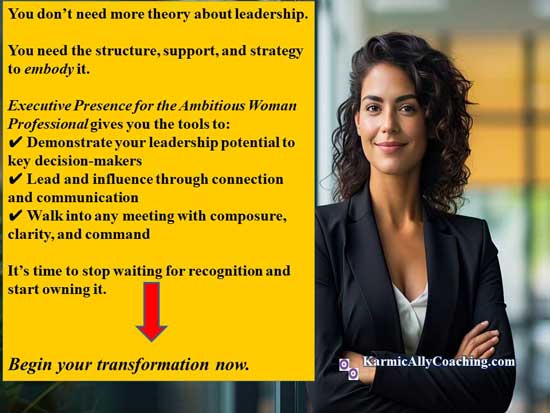This post has already been read 97 times!

Have you ever walked into a room and felt the air change before anyone spoke?
Perhaps you felt a subtle tightening in your chest or a flicker of tension that you couldn’t quite name.
What you had was an instinctive knowing that something beneath the surface has shifted.
Normally you’d think it was your “intuition.”
Another way to look at it is what Neuroscience calls interoception.
It is awareness of your body’s internal senses or signals and identifies how you feel.
You know something? It might just be one of the most underappreciated leadership skills of our time.
Your Body is the First Messenger
Before the brain forms a thought, the body sends a signal.
This could be a skipped heartbeat, a shallow breath or feeling a tightening of the jaw.
These are not random sensations. They are data.
It is real-time feedback from the nervous system about what is unfolding in the environment, often before the conscious mind catches up.
This process lives in the insular cortex, a small but mighty region of the brain responsible for mapping our inner landscape. It registers everything from hunger to heart rate, pain to pressure, and emotion to intuition.
Research shows something remarkable: on average, this region is more finely tuned in women.
This means many women are literally wired to sense the undercurrents in a room faster than their peers.
The Science behind the “Gut Feeling”
We are inclined to glorify logic as the highest form of intelligence. But logic, by nature, is slow. It analyses after the fact.
Interoception, on the other hand, operates in real time. It catches what others miss—the micro-expressions, the tone shifts, the pauses that linger too long.
A leader with strong interoceptive awareness can detect stress before it erupts, notice disengagement before morale dips, and sense dishonesty before it becomes visible.
It’s not mystical. It’s neurological.
The insular cortex builds a bridge between the body’s sensations and the brain’s interpretations. Over time, that bridge becomes a feedback loop.
Interoception is the foundation of self-awareness. It connects the brain and body, allowing us to notice not just what we think, but what we feel. This process shapes our identity, our capacity for self-reflection, and our understanding of who we are.
The more tuned-in a person is to their internal signals, the faster they can translate emotion into insight, and insight into action.
This is why some leaders seem to “just know” when to intervene or when to stay silent.
Their body is processing information others haven’t consciously seen yet.
The Mislabelling of Emotional Intelligence
Here’s the paradox.
The very ability that grants women this early-warning radar often gets dismissed as emotionality.
“She’s overreacting” or “She’s too sensitive.”
“She’s reading too much into it.”
Sound familiar?
In truth, this sensitivity is not weakness—it’s precision.
When a woman senses the rising tension in a boardroom before it explodes or feels the undercurrent of resistance during a change initiative, she isn’t imagining things.
Her nervous system has picked up micro-signals others’ minds are too slow to register.
Yet because this intelligence doesn’t fit traditional leadership molds that have dominated for decades by rationalism and detachment, it often gets suppressed.
Leaders are told to “stay objective,” to “manage emotions,” to “keep it professional.”
But in doing so, they cut off access to the most advanced instrument of perception they possess: the body itself.
The Quiet Revolution of Somatic Leadership
What if leadership wasn’t just about strategy and speech?
What if it was also about sensation?
Imagine leading not only with intellect, but with awareness that runs through every cell.
Feeling the pulse of a team.
Sensing the emotional temperature of a conversation.
Navigating with the body as compass, not constraint.
This is not some poetic metaphor. It’s the foundation of somatic leadership –a growing field of practice that integrates neuroscience, mindfulness, and embodied intelligence.
Somatic Leadership is an approach that emphasizes the connection between the mind and body in the context of leadership.
It draws from somatic coaching which focuses on bodily sensations, movements and postures as essential elements for fostering self-awareness and personal growth.
This method recognizes that effective leadership is not solely about cognitive skills but also involves embodying leadership qualities authentically.
So, in this paradigm, the body isn’t something to manage. It’s something to listen to.
The body tells the truth before the mind rationalizes it.
It reveals dissonance before the story catches up.
A leader who ignores those signals risks walking blind into avoidable conflict.
A leader who honours them cultivates presence, empathy, and authenticity that no script can manufacture.
Somatic leadership integrates body awareness with leadership practices, enhancing emotional intelligence, decision-making and personal development.
It’s time to move from Suppression to Integration
For centuries, women were conditioned to mute their bodily awareness.
They were told to be “composed,” “professional,” and “unshakable.”
But the paradox of composure is this: when emotion is suppressed, sensitivity dulls and with it, the intuitive edge that makes perception powerful.
Reclaiming interoception isn’t about becoming more emotional. It’s about becoming more attuned.
It means
- Noticing the subtle rise in heart rate during a negotiation and using that information to regulate breathing and stay grounded
- Sensing the collective unease in a meeting and pausing to name what everyone feels but no one dares to say
- Translating bodily wisdom into relational intelligence
This is leadership in its most evolved form -responsive, not reactive. Leadership that is present and not performative.
The Philosophy of the Inner Compass
At its core, interoception challenges our entire definition of leadership.
We’ve been taught that leadership projects outward: charisma, confidence, communication.
But true leadership also receives.
It listens inwardly decoding the silent data streaming through the nervous system.
It trusts that the body is not an obstacle to clarity—but its origin.
When the mind leads alone, it strategizes. And when the body joins, it harmonizes.
The future of leadership lies not in louder voices, but in deeper resonance.
Not in detachment, but in embodied wisdom.
That’s because leadership isn’t just about commanding a room. It’s about feeling it—and guiding it toward coherence.
From an evolutionary lens, this makes perfect sense.
The capacity to read micro-shifts in physiology, whether of one’s own body or others, was a survival mechanism. It helped detect danger, gauge safety, and navigate social hierarchies long before language existed.
In modern leadership, those same instincts translate into social acuity, conflict management, and emotional resilience.
The leaders who thrive in high-stakes environments aren’t the ones who ignore their bodies but the ones who listen.
They understand that their nervous system is a sensor network picking up cues about safety, belonging, and alignment faster than conscious reasoning ever could.
This isn’t softness. It’s strategy. It’s biology in service of brilliance.
The Reframe that changes everything
So perhaps the next frontier of leadership development isn’t another framework, assessment, or communication hack.
Perhaps it’s learning to trust the body again.
To allow the heart rate, the breath and the subtle unease become part of decision-making, not obstacles to it.
Recognize that sensitivity is not fragility but information density.
And that the most grounded leaders are often the most sensitive ones, because they are the most connected to their internal signals.
In a world obsessed with being data-driven, interoception reminds us that some of the most valuable data comes from within.
Call to Reclaim Embodied Wisdom
The most powerful leaders of the future will be those who master both dimensions of head and heart, logic and body, analysis and awareness.
They will sense before they act, feel before they speak and respond instead of react.
Because leadership that starts from within radiates outwards with a steadiness that no external performance can replicate.
To lead from the body is not weakness.
It is wisdom refined by evolution itself.
And perhaps the greatest act of leadership in this noisy world is learning to hear the quiet signals that have been speaking all along.





 I adhere to the Certified Coaches Alliance Code of Ethics and Standards. A copy is available on request.
I adhere to the Certified Coaches Alliance Code of Ethics and Standards. A copy is available on request.
 Let's Talk through the Connect Form:
Let's Talk through the Connect Form: